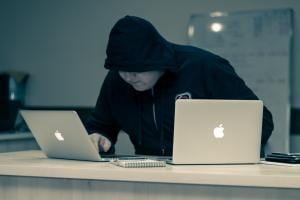We all appreciate privacy. People sometimes use things like incognito mode to get better prices on flights or double-check to make sure things are encrypted before talking about sensitive subjects. (Some also use such means for illicit activities like viewing pornography. However, misuse does not imply the means is evil.) But a new hack indicates online privacy might all be an illusion.
I’ve written about privacy numerous times before, but never on this directly. Most prior cases I dealt with involved things like DNA, facial recognition, or similar. This case instead is about the very structure of online privacy. Someone hacked FireEye, the top anti-hacking company. Let’s examine the story and briefly analyze it.
FireEye Hack

The New York Times reported:
For years, the cybersecurity firm FireEye has been the first call for government agencies and companies around the world who have been hacked by the most sophisticated attackers, or fear they might be.
Now it looks like the hackers — in this case, evidence points to Russia’s intelligence agencies — may be exacting their revenge.
FireEye revealed on Tuesday that its own systems were pierced by what it called “a nation with top-tier offensive capabilities.” The company said hackers used “novel techniques” to make off with its own tool kit, which could be useful in mounting new attacks around the world.
It was a stunning theft, akin to bank robbers who, having cleaned out local vaults, then turned around and stole the F.B.I.’s investigative tools.
You may not have heard of FireEye, but calling it a top cyber-security firm is accurate. It seems they had two big money makers. First, they would try to hack companies’ computers with their permission to try to find vulnerabilities. (Sidenote: before joining the seminary, I seriously considered looking for a job like this with my computer engineering degree.) Second, after attacks like on Sony or Equifax, they called FireEye in to find out who did it.
I think many of us already assumed there was no privacy online. However, making it clear that hackers can enter even a top security firm reaffirms this.
Privacy Implications
This means nothing online can really be private if someone really wants to find it. Obviously, most of us won’t have this degree of hacking going in to find out all our activity. But, imagine an opposition leader under Putin or a Uighur leader in China, and how this loss of any possible privacy might negatively affect them. We should want some privacy even if we don’t think we will need it. At least basic privacy protections are a condition for achieving human flourishing. The constant erasure of privacy can be an obstacle to our flourishing.
Imagine if a public website published every flirty word you said to your spouse. Even with nothing objectionable, most people would feel embarrassed. Or imagine some other things that you want to keep private, whether minor transgressions or just intimate things.
In Fratelli Tutti 42, Pope Francis spoke about the right to privacy:
Oddly enough, while closed and intolerant attitudes towards others are on the rise, distances are otherwise shrinking or disappearing to the point that the right to privacy scarcely exists. Everything has become a kind of spectacle to be examined and inspected, and people’s lives are now under constant surveillance. Digital communication wants to bring everything out into the open; people’s lives are combed over, laid bare and bandied about, often anonymously. Respect for others disintegrates, and even as we dismiss, ignore or keep others distant, we can shamelessly peer into every detail of their lives.
Conclusion
I don’t know if any technical way to ensure privacy online exists. Maybe the best hackers can hack any system. We should however, be vigilant in protecting the right to privacy. Catholics share basic principles here with others so we can work with them on defending privacy. This will likely become more pressing over the coming decade. Let’s put regulations in place while some options for ensuring privacy still exist.
Note: Please support me on Patreon. This allows me to write more articles like this. I don’t see many others covering privacy from a Catholic perspective. My doctoral thesis is on this topic and one thing I’ve noticed doing it is how few people have written on it from a Catholic perspective.












